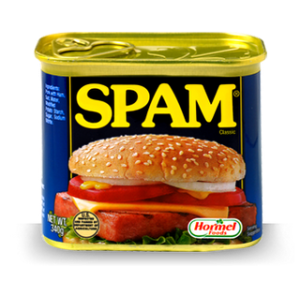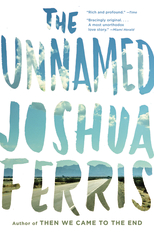It’s time. I’ve re-written and re-drafted until I can draft it no more (well, maybe just the once, for old time’s sake). I’ve pitched the book at an agent/publisher pitch conference and got some positive feedback (two partials requested and one full manuscript, out of four pitches). I’ve had substantive, copy and line edits carried out. I’ve spent a year or more on Publisher’s Marketplace compiling a master list of potential agents. If all of this seems a little obsessive compulsive to you, consider this: you only get one shot with any given agent or publisher. One audition to wow them. If you don’t you can never go back. Not with that project. Maybe with the next one. So there’s a lot riding on this step. Having taken four plus years to write a book, wouldn’t you want to spend a little time to make sure it’s not stillborn too?
Anyway, if you think that’s a little excessive, just wait. You ain’t seen nothing yet. So I have my list of agents, and a clear favourite at the top of the list. Julie Barer of Barer Literary. I’ve been stalking Ms. Barer for at least a couple of years.
The first time I found her on an agent directory she had one of the qualities I was looking for: she was young and hungry, and therefore highly motivated. But having just set up her own shop, she didn’t have much of a visible track record. I wasn’t subscribing to Publisher’s Marketplace at the time, so I couldn’t tell what deals she’d done at her previous agency (Sanford J. Greenburger Associates). I loved the fact that she’d worked at one of my favourite bookstores in New York City (Shakespeare & Co. Booksellers). When I was working for Jupiter Communications, the New York office just north of Houston on Broadway was a short walk from their Broadway branch. Stars seemed to be aligning.
Since those days, she’s become something of a rising (perhaps even a risen) star in the New York literary scene. She’s done a particularly good job of representing debut authors. Everything I’ve read about her and her approach and philosophy resonates with me. She likes to work with authors to make the work the best it can be before approaching publishers. She understands the need for personal care and attention and she wants to work with her authors over the long-haul. (If you’re interested, you can read her interview with Poets & Writers).
There are other pluses. She likes international settings (my book is set in London), with historical backgrounds (during the 60s, 70s, 80s and 90s). She likes books which teach her about unknown or untapped little wrinkles in history. The historical background for my novel was a new law, passed in the UK in 1960, which legalized gambling. According to the BBC, within 18 months Britain’s high streets were pocked with off-course betting outlets, as bookmakers set up shop in neighbourhoods. The book looks at the social impact of this through its impact on one family, and one relationship in that family — a mother and her son.
So far so good. On the surface everything looks groovy. But now we come to the most crucial part of the equation. Taste. Will she like my writing? Will she get it?
Think of this journey as a form of bizarre online dating. The agent/author relationship is a cross between a marriage and a business partnership. Compatibility is key. For some people a mixed tape is a good, early way, to check the compatibility index. Think of an agent’s list as their mixed-tape. These are the books they loved enough to fight for. If I don’t love them too (or at the very least respect and admire them) what chance does this relationship have?
I compiled a list of five novels Ms. Barer represented; books whose emotional landscapes seemed similar to that of my own book (fractured family relationships, secrets and betrayals, that kind of thing) and added a sixth just because I was intrigued by it. I took my list to my local bookstore, Nicholas Hoare. The little old lady who serves there on a Saturday morning is delightful. I’m never sure if she remembers me, or if she’s just that friendly to all her customers. She was devastated that she didn’t have a single one of the six on her shelves (the full list, in case you’re wondering, is at the bottom of the page). She insisted that I should wait while she found me a book (I have at least 20 novels sitting at home waiting for my attention, but what the hell, who doesn’t need more books?). She came back with several I’ve already read (Sister’s Brothers, Cat’s Table, Sense of an Ending), a couple of non-fiction titles that intrigued me, and also, miraculously, another book represented by Ms. Barer: Major Pettigrew’s Last Stand.
 Foolishly, I mentioned this to her. She launched into a rhapsody of praise for the book. I’m not the first customer she’s introduced to it. Far from it. And the others, she told me, have all come back wanting more from this author (Helen Simonson). I was ordered, should I be speaking with Ms. Barer (I’m apparently a personal friend of her agent now), to tell her to get Helen working on the next one, tout suite. I’m actually really liking it, although its tone is gentle, wistful and a little whimsical (while mine is often gritty, with a certain dark humour). It’s reminding me a lot of Barbara Pym, who’s been largely forgotten these days. But the good news it, it’s distinctively English. So you CAN sell books in New York about England and the English. Good to know. I’ve learnt that at least.
Foolishly, I mentioned this to her. She launched into a rhapsody of praise for the book. I’m not the first customer she’s introduced to it. Far from it. And the others, she told me, have all come back wanting more from this author (Helen Simonson). I was ordered, should I be speaking with Ms. Barer (I’m apparently a personal friend of her agent now), to tell her to get Helen working on the next one, tout suite. I’m actually really liking it, although its tone is gentle, wistful and a little whimsical (while mine is often gritty, with a certain dark humour). It’s reminding me a lot of Barbara Pym, who’s been largely forgotten these days. But the good news it, it’s distinctively English. So you CAN sell books in New York about England and the English. Good to know. I’ve learnt that at least.
I’m making it my April 2012 book (yes, I know, I haven’t followed up on that series for months… I’ll get onto it right away), because it qualifies on all fronts.
What next? Next is the query letter. A single page missive where I beg Ms Barer to represent my novel, tell her why I want her and nobody else to do so, describe the book in about 100 words, and convince her I have the credentials of a writer. The only dangling question is, should I mention my little old lady, and the request for another novel, pronto, from Ms. Simonson?
Oh, and for those who are interested, the books from Julie Barer’s list that I was looking for in Nicholas Hoare were:
The Unnamed by Joshua Ferris, A Friend of the family by Lauren Grodstein, The Summer We Fell Apart, by Robin Antalek, The Boy Who Loved Tornadoes by Randi Davenport and Long Drive Home by Will Allison. The book I ordered just ’cause it looked interesting was The Family Fang by Kevin Wilson.
43.651263
-79.364016
 Like most bloggers I get regular spam promising me that if I just buy some little doohickey for the site I will explode on the Internet. My site traffic will soar. It will feature more prominently in Google searches. Etc. etc. Here’s why I ignore these messages (and probably always will): I don’t care about traffic — by itself, traffic means nothing.
Like most bloggers I get regular spam promising me that if I just buy some little doohickey for the site I will explode on the Internet. My site traffic will soar. It will feature more prominently in Google searches. Etc. etc. Here’s why I ignore these messages (and probably always will): I don’t care about traffic — by itself, traffic means nothing.





